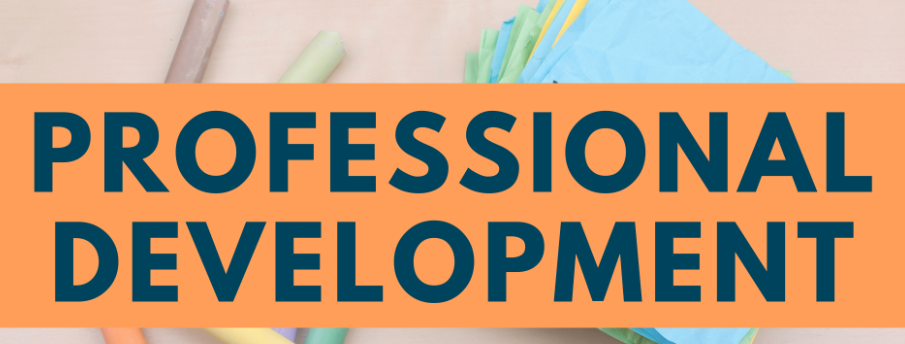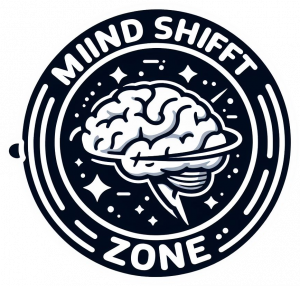If you’ve ever confused the terms personal and professional development, don’t worry because you’re not alone.
Sometimes it’s hard to even differentiate your work life from your private life, so we don’t blame you. To add some clarity, this blog is all about learning the differences and the similarities between personal and professional development. By the end, you’ll be able to spot a development opportunity, and how it can benefit you, from a mile away.
What’s the distinction between personal and professional development?
If you’re in the TLDR, or “too long didn’t read,” segment of the population, just know that the distinction between what is personal and professional development can be quite simple:
- If you progress in your career, it’s professional development.
- If you improve your quality of life, it’s personal development.
It can also get more complicated. If you’re interested, then consider the following: it’s common that your two types of development opportunities are connected or related to one another.
Often we tend to focus more on professional than personal development, so why is personal development important? For instance, if you improve your quality of life, it might impact the work that you do. Improving your personal life might include things like better managing your stress, exercising regularly or spending time with loved ones.
Something as simple as worrying less about cleaning your house can be a big booster to your mental state. For example, it might lead to better performance at your sales position.
Or, your ability to spend time with loved ones might relax you, allowing you to take on each new workplace challenge without hesitation.
Types of career development
Some professions, whether it’s accounting or medicine or another technical field, have standardised professional development targets. They’re often referred to as CPD, or continuous professional development.
A CPD is like a target that professional organisations assign in order to standardise and regulate the profession. They may differ from country to country or between governing bodies so be sure to check out any professional associations or rules in your region.
For your professional development, a CPD opportunity can be beneficial. They provide straightforward opportunities to improve your skills and stay on top of industry trends.
Or, if you work for a large organisation, there are also probably plenty of workplace-sponsored development opportunities to take advantage of. These might include writing workshops or special conferences about industry-specific topics. In many cases, big companies will encourage you to attend these events. They may even cover the costs.
Many professions, however, don’t have standardised or sponsored development opportunities. That’s especially true if you work for a small business or are self-employed. But that doesn’t mean you should give up on professional development.
It’s true – it might make it harder for you to decide what to do with your professional development. The responsibility is totally on you and you have to do your own research.
On the other hand, you can also think of this as an advantage. A lack of direction might also add freedom to personalise your plan and open doors that wouldn’t be possible otherwise.
Getting advice about your professional development
If you lack direction about your professional development, or want to supplement your CPD opportunities, you should really consider the advice that a mentor or coach can offer you.
You can get really good help with shaping your personal and professional development by asking someone you trust or admire. At a company, that might mean a colleague who’s worked there longer than you and who knows about the ins and outs of the industry.
Or, you might already have a mentor for your career. Whether it’s an old colleague, a trusted boss or a good friend, don’t be afraid to lean on them for some advice about your career development. You always have the option to decline their advice so there’s no harm in hearing it.
Just be sure that you hear an opinion that you actually value. If you’re new to an organisation, don’t just ask your new cubicle buddy for fundamental career advice.
You also shouldn’t ask advice from someone who lacks an understanding of what you do for a living. If you do, you’ll probably hear some generic advice like “it’s always a good idea to learn about accounting” or “software coding is the most in-demand skill of the future.”
In fact, generic advice like that might do more harm than good. It might divert your attention away from other constructive development activities that you could be doing.
One way to get sound advice is to seek out professional guidance. A career coach can assess your current situation and work with you to answer the question ‘why do I need a personla development plan?’.
To help weigh the options, consider that your career is a major part of how you’ll spend the time in your life. It can’t hurt to get a valuable perspective on it from a trained and certified professional!
Two tips for achieving your goals
Whether personal or professional development, it’s important to take action. Here are a couple of ways you can improve your development opportunities:
1. Make SMART goals
Before taking action, make sure that you’re taking the right one. Learn how to write a personal development plan and make sure that your personal development plan includes SMART goals.
A SMART goal has the following characteristics: specific, measurable, achievable, relevant and time-bound.
In other words, the best goals are ones that are highly focused, that you can actually achieve and that you can monitor your progress along the way.
For example, a SMART professional goal might be: “over the next six months, improve my networking skills to help develop mentorship opportunities.” This professional goal is specific and you’ll know if you succeed because it’s quantifiable and has an end date. It’s also relevant to your career because networking is directly related to making important business connections.
For your personal life, an example of a SMART development goal might be “by the end of the year, live a more environmentally-friendly lifestyle by relying on public transportation alone.” It’s measurable, relevant to your personal happiness and has a one-year timeline by which you can track your progress.
2. Tell someone about your goal
Next, try letting someone in on your personal and professional development goal. Your goals don’t have to be secretive. You can use others for help.
But don’t tell just anyone. Ideally, confide about your personal and professional development goal with a close friend or mentor that will hold you accountable. It better be someone that will actually call you out if you don’t make progress, or else what’s the point?
It might be annoying at the time, but being called out for your inactivity can be a good motivator for accomplishing your goals. Plus, if it’s a close confidant who’s doing it, it won’t affect your relationship too much.
Perhaps the best option is to find someone to share the personal development experience with. Find a friend who wants to attend a public speaking seminar with you or who can spare a few hours a week to help get you to the gym.
Sharing the experience is a great way to increase accountability (for both of you) and to see great results.
If you’re looking for more advice on how to lead a better life at home or at work, the Upskill Coach blog has you covered. There, you’ll find all sorts of content about upgrading your skills, improving your decision-making and widening your perspective about your self-development.











